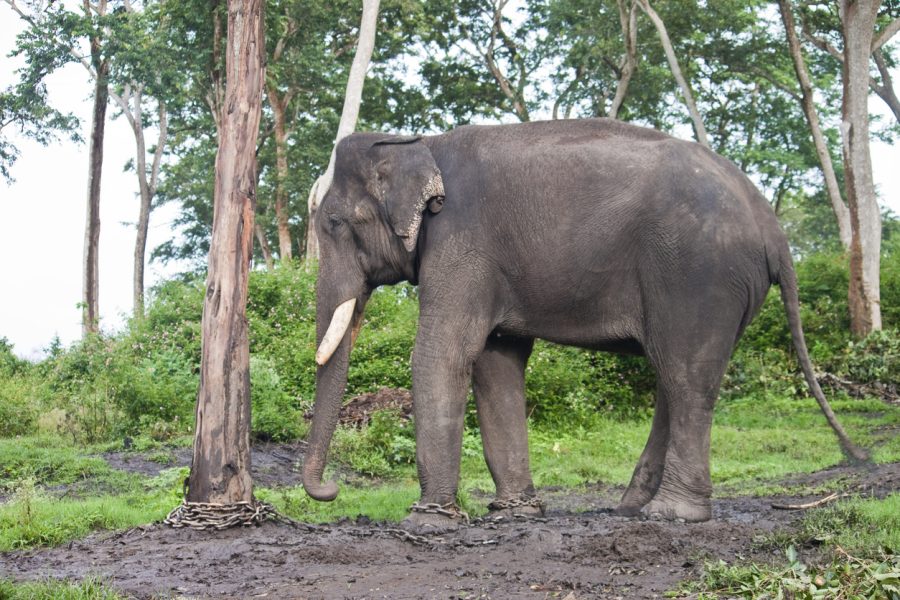
Central wildlife bureau points to serious lapses in probe of elephant poaching in TN
WCCB report says poaching is taken too lightly, accused are not fully named, and cases are weakly framed

Even as the Madras High Court has ordered the forming of a Special Investigation Team (SIT) to probe into the elephant poaching cases in Tamil Nadu, a 2019 report by the Wildlife Crime Control Bureau (WCCB) submitted before the court reveals serious lapses on the part of the Tamil Nadu forest department in investigating poaching cases in the state.
The WCCB is a statutory body established under the Union Ministry of Environment, Forest and Climate Change to combat organised wildlife crime.
Ivory trade chain
The 2019 WCCB report reveals the names of 18 habitual elephant poachers in Tamil Nadu and six from Kerala who had been selling ivory to two middlemen — Babu Jose and Benny Joseph of Kerala. Later, the ivory is transferred to one Aji Bright, from whom the kingpin ‘Eagle’ Rajan collects and sells to customers in India and abroad in the form of raw ivory or ivory artefacts. The report pertains to elephant poaching cases that happened between 2010 and 2015.
Watch: Elephant conservation suffers in TN as Union Government fails to release funds
The WCCB was directed by the Madras High Court to investigate the death of seven elephants in Megamalai Wildlife Division in Tamil Nadu’s Theni district, and 12 elephants in the state’s Sathyamangalam Tiger Reserve. It initially found seven cases of elephant death due to electrocution in Megamalai Forest Division, three in Sathyamangalam Forest Division and six in Hasanur Wildlife Division.
Though the elephant deaths were due to electrocution, there were many instances suggesting large-scale elephant poaching in Tamil Nadu forests, the WCCB found.
Inadequate filing of cases
The report highlighted the rather casual and nonchalant approach towards elephant poaching cases in Tamil Nadu forests. “For the murder of three elephants during three different times in the same (forest) range limits by the same accused persons only one case was registered against them at the Sigur range of the Coimbatore Forest Division. The case was registered in a very casual and careless manner. Only two or three persons’ names were mentioned as accused,” the WCCB report read.
Also read: Kerala villages hit hard by wild boar attacks; Centre in no hurry to help
“Though their (accused) statement is very clear about the persons involved in poaching, their names were not included in the accused list and the cases were framed very weakly, with limited sections of the Wildlife Protection Act, 1972 (cited),” the report added.
The investigation report also highlighted that the main accused, Aji Bright, was not being booked in any of the cases, despite having clear evidence of purchasing 300 kg of ivory from Babu Jose by means of elephants poached in Tamil Nadu.
“According to the statement of Babu Jose, he (Aji Bright) has collected a total of 16 pairs of tusks, which means eight elephants were killed. At least eight cases must have been registered for eight elephants. On the contrary, the cases registered by the Tamil Nadu Forest Department are nowhere matching the quantity of ivory traded by Babu Jose to Aji Bright, which is nearly 300 kg,” the report read.
Illegal money
The report has also suggested that the cases be taken to the notice of the Income Tax Department as well as the Enforcement Directorate at the earliest, since they involve a huge amount of illegal money.
When asked about the lapses, an official who was with the Coimbatore Forest Division earlier, and who did not want to be named, told The Federal that the department faced technical problems in filing the cases. “The accused confesses of killing more elephants, but we don’t get the carcasses of the animal. When we don’t get the carcasses, it is very difficult to file a case,” the officer said.

